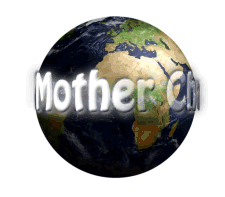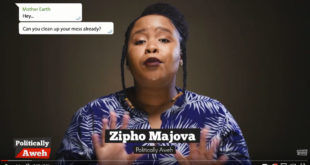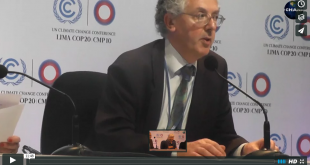This video from the Cop 22 in Marrakech 2016 where we hear a Japanese speaker telling us about the importance of facilitative dialogue in order for us to discuss important issues. The facilitative dialogue is where bodies are supposed to take stock of the collective progress towards their long term collective target. It is essential to have a good 2018 facilitative dialogue but there is a problem. Because Cop22 does not have any official agenda dialogue and there only is one paragraph on a meaningful dialogue. We are at risk of having just another talk shop in 2018 which would be a failure.
The speaker say’s we must have a meaningful discussion about how we will discuss topics in 2018. There seems to be some conversations about facilitative dialogue but we need more inputs with regards to how the facilitative dialogue should be done in 2018.
English speaker Theresa tells us about the action aid report called “hotter planet humanitarian crisis”. She discusses that after the huge fanfare of the Paris agreement and in the year immediately following, the world has been largely silent about the biggest ever global climate emergencies. The ignoring of this global climate crisis is something quite astonishing. We have just gone past 400 parts per million from within the atmosphere and each September in a row has been the hottest ever. It’s being played out before our eyes the escalation of temperatures all over the world and the climates of countries are changing at a rapid rate with real consequences.
These topics must be discussed and Theresa thinks that this may be the largest drought ever and that’s because 2017 has seen the largest drought ever and it’s set to continue. In 2017 there was 30% of the planet in drought conditions. There has been data that says more than 400 million people have been affected by drought and there is a map for all to see that shows where people were worst hit by drought. The data is very telling in it and shows the countries that were hit very badly with many countries declaring emergencies. The impact world over is devastating including crop damage, mass hunger crisis, this can fuel crime and in places like Zimbabwe people are surviving off leaves and bananas and even suicides increasing.
2016 WAS OUR PLANET’S HOTTEST YEAR since humans began keeping records, with average global land and water surface temperatures spiking to 58.69 degrees Fahrenheit. That’s 1.69 degrees warmer than the 20th-century average. It might not sound like a lot, but the difference between our current global average and one during an ancient ice age—when the U.S. sat under glaciers 3,000 feet deep—is only 5 degrees or so, according to the climate record preserved in ice and trees.
The effects of the heating planet are really having massive health issues around the world with women having to offer sex work in order to pay for their child’s education. This is a disaster globally and something needs to be done. There is a 3.1 billion dollar humanitarian gap to keep people fed for the next few months. Scientists conclude that the effects of high temperatures have had massive effects on el nino. The lesson we must learn from the crisis is that we must invest massively in resilience and adaptation because how can certain countries cope with crisis like this without it. We must work on preventative measures to stop crisis like this happening in the first place. The climate world has not even spoken about how temperatures are causing these issues.
The speaker says countries must recognise the moral responsibility to help with issues caused by climate warming.
Judy asks why we still go to money to solve the crisis that were caused by the chase for money in the first place. It is ridiculous that we still expect money to solve the issues. The companies that have reaped the profits of industrialisation must share the profits of raping the resources back with those who are worst hit. This is what aid organisations are for.
Scientists agree that the earth’s rising temperatures are fuelling longer and hotter heat waves, more frequent droughts, heavier rainfall, and more powerful hurricanes. In 2015, for example, scientists said that an ongoing drought in California—the state’s worst water shortage in 1,200 years—had been intensified by 15 percent to 20 percent by global warming. They also said the odds of similar droughts happening in the future had roughly doubled over the past century. And in 2016, the National Academies of Science, Engineering, and Medicine announced that it’s now possible to confidently attribute certain weather events, like some heat waves, directly to climate change.
To conclude this video we try to capture some good things that have been happening with big companies. There seems to be progress with the redistribution of wealth with regards to richer countries helping out the countries that suffer most. We are aware that the current economic system has caused most of the climate change in the first place. However if we can make a fundamental change to this then progress will happen.
Links: https://climate.nasa.gov/ , https://www.nrdc.org/stories/global-warming-101 , https://www.iol.co.za/capeargus/news/everydropcounts-drought-wake-up-call-on-climate-change-threat-13673379
By Alex Mitchison
 Mother Channel Environmental, climate change news and media.
Mother Channel Environmental, climate change news and media.



